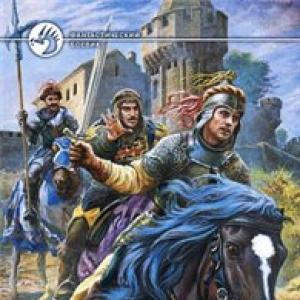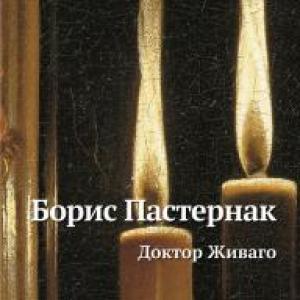Events in the history of January 29. Day of Firefighters of Ukraine
World history, significant and fateful events, the birth of celebrities, as well as their death, discoveries and accomplishments that took place for many centuries on the day of January 29, are reflected to one degree or another on this page - with which you can familiarize yourself, learn more about it day of the year.
We will tell you in more detail about this day, as well as about the other days of the year, because on the day of January 29 a variety of events, incidents, discoveries, amazing things, both explained and incomprehensible to us, and so on, took place - what was so special about him as you were and read below.
This section "about every day of the year" and in particular on January 29 - displays the most significant events that took place in our world at one time or another, and from ancient times BC. Here you will learn about amazing discoveries and scientific achievements, turning points in the history of the world or any country, the adoption by politicians and rulers of fateful decisions, get acquainted not only with the birth of famous people of the world, politicians, commanders, especially royal, but also with the days of their death , as well as what the outcome was waiting for them.
January 29 to 20 ( XX) centuries - what was the day like?
803 - Husaima ibn Hazim al-Tamimi becomes Shirvan Shah.
1065 - The Derbent nobility recognized the ruler of the city of Abd al-Malik Lashkari.
1327 - Edward III of the Plantagenet dynasty at the age of 15 becomes king of England.
1430 - Andrei Rublev, Russian icon painter, died.
1616 - The Dutchmen J. Lemer and V. Schouten were the first to reach the southernmost point of South America - Cape Horn.
1649 - Zemsky Cathedral promulgated the Council Code (new code of laws of Russia).
1676 - Russian Tsar Alexei Mikhailovich (1645-1676) died.
1696 - Ivan V. Died. The beginning of autocracy of Peter I
1710 - Peter I decree on the official introduction of a new civil alphabet in Russia.
1801 - The manifesto of Paul I on the annexation of Eastern Georgia (Kartli-Kakheti) to Russia.
1804 - Opening of Kharkov University.
1814 - Johann Gottlieb Fichte, German philosopher, representative of German classical idealism, died.
1819 January-February - Preparations for opposing the Russian colonial authorities began in the East Caucasus.
1833 - The first city post office in Russia was established in St. Petersburg.
1851 - On the Mississippi River, colliding with a log, the American ship John Adams sank. Killed 123 people.
1856 - Queen Victoria of Great Britain established the country's highest military award, Victoria Cross.
1860 - Anton Pavlovich Chekhov, Russian writer and playwright, was born.
1866 - Romain Rolland, French writer, Nobel Prize winner in literature (1915) was born.
1886 - In Karlsruhe (Germany), Karl Benz patented the first successful car with a gasoline engine. Birthday car.
1891 - Sofya Vasilievna Kovalevskaya, Russian mathematician, first woman correspondent member of the Petersburg Academy of Sciences, died.
1899 - The premiere took place at the Bolshoi Ballet Theater of P. I. Tchaikovsky "Sleeping Beauty."
January 29, 1916 - what was the day like?
1916 - In England, the first tests of the tank.
1916 - Paris was first bombarded by German airships
January 29, 1918 - what was the day like?
1918 - Ataman of the Don Army, General A. Kaledin, committed suicide in Novocherkassk.
January 29, 1920 - what was the day like?
1920 - In Soviet Russia, universal labor service was introduced.
January 29, 1922 - what was the day like?
1922 - Opening of the Moscow Philharmonic.
January 29, 1932 - what was the day like?
1932 - At the Gorky factory, the first "lorry" - a truck "GAZ-AA"
January 29, 1942 - what was the day like?
1942 - Hitler ordered that all methods be used to deliver labor from the East to Germany.
January 29, 1943 - what was the day like?
1943 - Soviet troops liberated the cities of Maykop and Tikhoretsk from the Nazis.
1943 - In Germany, a decree was issued to arrest and send all Roma to concentration camps.
Now you are reading about the day of January 29 - that this day left in itself in human memory, how it differs from other days of the year, how exactly historians and history will remember it for many centuries. You should not once again remind or recall that each day is special in its own way, like the one you are reading about, which we hope you agree with - we are sure that it is hardly possible to find two identical people in the world, just like there are no two identical of the day!
January 29, 1944 - what was the day like?
January 29, 1947 - what was the day like?
1947 - A record low air temperature of 26.7 degrees below zero is recorded in the UK.
January 29, 1960 - what was the day like?
1960 - Doctors at the University of Washington created the first artificial kidney.
January 29, 1969 - what was the day like?
1969 - Allen Dulles, an American statesman, one of the founders and director of the CIA (1953-1961), died.
January 29, 1992 - what was the day like?
1992 - Transformation of the State Library named after Lenin to the Russian State Library (RSL).
January 29, 1994 - what was the day like?
1994 - Died Evgeny Leonov, Russian Soviet actor, People's Artist of the USSR.
January 29, 1997 - what was the day like?
1997 - a New York court sentenced Vyacheslav Ivankov (Yaponchik) to 7 years and 9 months in prison.
January 29, 2000 - what was the day like?
2000 - At a casino in Las Vegas, waitress Cynthia Jay won $ 35 million on the One-Armed Bandit slot machine (the world's largest slot machine win).
What was the day of January 29th - what did you remember?
January 29 will be remembered for its own achievements, the course of history, traditions, holidays, as well as what events took place, who were born from prominent people, including famous politicians, royalty, rulers, generals and traitors, artists and actors, scientists and famous artists, successful athletes and scientists, discoverers and travelers, singers and musicians, like many others.
In addition to what happened on January 29, you also learned about the significant and memorable dates of this January day, enriched yourself with new knowledge - folk sayings and signs, learned what holidays are celebrated by Catholics and Orthodox. We hope you are convinced that each day is individual and special in its own way - on January 29, like the other days of the year, it is unforgettable and unique, it has its own personal story that is unlike any other!
We are sure that you were interested in learning about the day of January 29 - for our part, we promise to replenish the page with new data that we will be able to get about this day, to supplement the article, expand it with new events or old interesting news about which we still do not know but what they surely were and they will certainly appear!
Published 01/29/18 00:24Today, January 29, 2018, Mobilization Day against the threat of nuclear war and other events are celebrated.
January 29, 2018 marks the national holiday Peter the half feed. The church today recalls the Apostle Peter, the first Pope. The people considered him the patron saint of cattle. The holiday was called "half-feed" because on that day domestic animals already ate half of the supplies prepared for them.
According to legend, before becoming an apostle, Peter was a simple fisherman, had a wife, 2 children and bore the name Simon. He was introduced to Jesus Christ by the younger intckback Brother Andrew the First-Called. The Lord did not immediately make Peter an apostle. When he strengthened faith, Christ appeared in his house and cured his mother-in-law of fever. After this, Peter was named an apostle.
After the Ascension of Jesus Christ, Peter confessed his name more furiously than others. He preached the Word of God, and healing came from his words. For his sermons, he repeatedly ended up in prison. When he was imprisoned for the third time in prison, he was put on chains (chains). However, at night the Angel of the Lord God came down and set him free. Later these chains were found by Christians and saved them.
Peter went to travel. For all the time of his wanderings, he converted many to the Christian faith and exposed many deceivers. Having reached Rome, Jesus Christ appeared to him and foretold of imminent death. Peter was crucified by the will of Emperor Nero
On this holiday, they try not to weave, not spin, not to use sharp objects that resemble the teeth of a wolf in their work. To prevent the wolf from killing animals, a chain is hung on the outbreak, and stones (according to the number of animals) or a key are attached to it. It is believed that this amulet protects cattle.
According to signs, if a snowstorm is circling in Petra, there will be a lot of rain in the summer, and if it is frost, then this will cause heat and drought.
If the wind blew from the north, the weather will deteriorate and frost will strike, and if the month is bright on this day and has steep horns, then the frost will slightly compress.
Mobilization Day Against the Threat of Nuclear War
The day of mobilization against the threat of nuclear war is celebrated annually on January 29. This event marks the anniversary of the adoption of the Delhi Declaration on 29 January 1985. It was signed by the governments of Mexico, India, Argentina, Greece, Tanzania, Sweden. The document calls for a halt to the nuclear arms race. For this, a number of measures are put forward: control, reduction of stocks, the complete elimination of destructive weapons.
Ivan, Maxim, Neonila, Peter.
- 1616 - Cape Horn is opened - the southernmost point of the Tierra del Fuego archipelago.
- 1833 - the first city postal network in Russia was organized.
- 1856 - The highest military award of Great Britain, Victoria Cross, was established.
- 1886 - car birthday - Karl Benz received a patent for his first car.
- 1908 - the first Russian flying club was established.
- 1964 - IX Olympic Games opened in Innsbruck.
- 1964 - Luge - Luge competitions were held for the first time at the Olympic Games.
- Emanuel Swedenborg 1688 - Swedish scientist.
- William McKinley 1843 - 25th President of the United States.
- Anton Chekhov 1860 - Russian writer and playwright.
- Romain Rolland 1866 - French writer.
- Alexander Chayanov 1888 - Soviet economist.
- Dmitry Malikov 1970 - Soviet and Russian composer and singer.
The first Benz car, made in 1885, was a three-wheeled two-seater crew on high spoke wheels, on which Benz put its new 0.9-hp water-cooled four-stroke gasoline engine. The cylinder was located horizontally above the axis of the huge rear wheels and brought them through one belt and two chain drives. The flywheel in the form of a large horizontal wheel was under the engine. It connected to the crankshaft with a bevel gear and was used to create uniform rotation and to start the engine. Electric ignition was carried out from a galvanic battery, which was technically more perfect than the Daimler glow tubes. Unlike the wooden Daimler cart, the car had a frame welded from metal tubes. According to experts, the three-wheeled car of Benz was more perfect than the work of Daimler.
January 29, 1886 is considered the birthday of the world's first gasoline car, as it was then that Benz received patent No. 37435 for his car. However, one can only be surprised by contemporaries who did not pay attention to the greatest invention of the century. Neither this three-wheeled car, nor its followers managed to break into the markets of Germany and France. Until 1893, no more than 15 samples of Benz cars were produced and patented.
The first city post appeared in Russia.
On January 29, back in 1833, the first city post office appeared in Russia. The place where the city post office first appeared in Russia was St. Petersburg. This happened Akurat January 29, 1833. Organized mail network was as follows. The city was divided into postal districts, there were 17. In the postal districts, there were 45 points where mail was received. Conventional shops, working until late in the evening, were perfectly suited for collecting correspondence, which two postmen in each district assigned three times a day to the post office.
But already in 1848 they refused the services of shopkeepers, hanging mailboxes around the city. At the post office, letters were sorted, stamped, and letter carriers carried them to addresses. “Stamp couvers” for paying postage in St. Petersburg have existed since 1845.
And on January 1, 1858, postage stamps appeared in circulation instead of "stamp couvers." Trial designs of brands were considered. As a result, the Postal Department and the Expedition for the Preparation of Government Securities in 1856 adopted the drawing of the first Russian postage stamp. Alexander II approved the replacement of the “stamp cover” with a postage stamp.
The first Russian flying club appeared.
On January 29, in 1908, exactly 102 years ago, the first Russian flying club arose. As historians noted, in those days, in order to push the development of aeronautics from the primitive stage of development, Vasily Korn (college assessor) through No. 1/1908. Aeronaut Magazine called for the establishment of an institution that could promote sports ballooning ideas among the public.
It so happened that his voice was heard, and on January 29, 1908, the founders of the Russian flying club gathered in St. Petersburg for their first meeting. At the meeting, a commission was created, which was entrusted with developing the Club Charter. The charter defined the main mission of the created enterprise: to develop in Russia the idea of \u200b\u200busing aeronautics for scientific, technical, military and sports purposes; to organize joint activities of scientists and aeronautics enthusiasts.
The club council, consisting of 35 people, was approved at a general meeting for a period of 5 years in November 1908. Another self-governing body was the general meeting. All private aeronautical institutions under his command that the club received the name "All-Russian Aero Club".
When in 1909 Nicholas II began to patronize the flight organization, the word "Imperial" was added to the name. At the same time, the Imperial All-Russian Aero Club entered the International Aviation Federation.
Events that happened on January 29th.
1547 - in Moscow, married to the kingdom of Ivan IV the Terrible.
1616 - Dutch sailors J. Lemer and V. Schouten discovered the extreme southern point of South America - Cape Horn.
1635 - Cardinal Richelieu establishes the French Academy of Sciences.
1710 - in the Russian Empire, a decree of Emperor Peter I was issued on the official introduction of the Russian civil alphabet. The church continues to use the Old Slavonic alphabet.
1801 - Manifesto of Paul I on the annexation of Georgia (Kartli-Kakheti) to Russia.
1804 - The opening of the Kharkov National University named after V.N. Karazin, one of the oldest universities in Eastern Europe.
1814 - the battle of Brienne took place.
1833 - the first city post office in Russia was established in St. Petersburg.
1851 - the John Adams steamer sank on the Mississippi River after a strong blow to the fuel. Killed 123 people.
1856 - Queen Victoria of Great Britain established the country's highest military award, Victoria Cross.
1896 - American physicist E. Grubbe was the first in the world to use radiation to treat cancer.
1916 - the last raid of German airships on Paris.
1918 - the battle of the Bolshevik-ants with Kiev students near Kruty.
1918 - SNK decree on the organization of the Workers 'and Peasants' Red Fleet (RKKF).
1919 - The US Congress passed the XVIII constitutional amendment prohibiting the production, transportation and sale of alcoholic beverages.
1927 - the first hotel with bathrooms appeared in England.
1932 - a lorry is born at the Gorky plant - the first GAZ-AA truck
1935 - the Kalinin (now Tver) region was formed in the USSR.
1958 - The first article on the dangers of the DDT insecticide appears.
1960 - the first artificial kidney was created.
1992 - Decree of the President of the Russian Federation Yeltsin B.N. on freedom of trade was issued.
1992 - State Library named after Lenin was transformed into the Russian State Library (RSL).
1993 - established diplomatic relations between the Russian Federation and Barbados.
2000 - at a casino in Las Vegas, waitress Cynthia Jay won $ 35 million on the One-Armed Bandit slot machine (the world's largest slot machine win).
2010 - the first flight of a promising aviation complex of front-line aviation, the fifth-generation Russian fighter.
Mobilization Day Against the Threat of Nuclear War
On this day in 1985 in New Delhi (India) at a meeting of the heads of state and government of India, Argentina, Greece, Mexico, Tanzania and Sweden, the Delhi Declaration was adopted. It called on the nuclear powers, as well as on parliaments and governments around the world, to end the nuclear arms race, as well as to reduce and subsequently eliminate nuclear arsenals and eliminate the very threat of nuclear war.
The document allowed enterprises and citizens to "carry out trade, intermediary and procurement activities without special permits." It was possible to trade “in any convenient places, except for the carriageway of streets, subway stations and territories adjacent to the buildings of state authorities and administrations”. The signing of this decree led to the fact that hundreds of thousands of trading people poured into the streets of cities.
In June 23 June 1992, a decree “On some measures to implement the decree of the President of the Russian Federation“ On freedom of trade ”was adopted, which, in particular, established that trade could be carried out“ in places designated by executive authorities ”.
86 years ago (1932) in Nizhny Novgorod, at the Plant named after Molotov (now the Gorky Automobile Plant), the first GAZ-brand car rolled off the assembly line - the GAZ-AA truck, better known as the “lorry”.
It was created on the basis of the American car Ford-AA, the license for the production of which the USSR bought in 1929. GAZ-AA was equipped with a four-cylinder engine with a volume of 3285 cubic meters. cm, which could develop a power of 42 horsepower, and a four-speed gearbox. Until 1934, the car’s cabin was made of wood and pressed cardboard, later they were replaced by metal. The truck had a fairly high cross-country ability on dirt roads, and when driving on a highway, it could reach speeds of up to 70 km / h.
GAZ-AA - one of the most popular Soviet cars. During its production, almost a million copies in various modifications were produced.
185 years ago (1833), the first city post office in Russia was established in St. Petersburg.
Prior to this, correspondence was sent only between cities and abroad, which created a number of inconveniences not only to ordinary citizens, but also to trading companies, enterprises and government agencies, which were forced to maintain a large staff of messengers to send various letters and packages.
In 1830, the State Council decided to organize a city post for experience in St. Petersburg. In October 1830, this decision was approved by Emperor Nicholas I, noting that the experiment would last no more than two years. Also, the “Regulation on the establishment of city post office in St. Petersburg” was published, where the main function of the postal service was determined: “for delivering letters from one part of the city to another without investing money and things.”
January 29, 1833 the first city post office was opened. Petersburg was divided into 17 postal districts. The city opened 45 reception centers, which were placed in ordinary shops. Postmen took the correspondence 3 times a day, delivered it to the post office, where it was sorted, and then delivered to the addressees. Forwarding a letter cost 20 kopecks, business cards or invitations - 10 kopecks.
The experiment turned out to be so successful, and already in 1835 Nicholas I signed a decree according to which the city post was approved on an ongoing basis. After 10 years, a similar service was opened in Moscow.
132 years ago (1886), the German inventor Karl Benz received a patent for his first car with an internal combustion engine.
It was a three-wheeled double crew weighing 250 kg on high wheels with spokes. The car was equipped with a four-stroke water-cooled gasoline engine with a capacity of 0.9 horsepower. The car, called Benz Patent-Motorwagen, developed a speed that was then high - 16 km / h. In 1887, the car was presented at an international exhibition in Paris.
On January 29, 1616, Dutch sailors J. Lemer and V. Schouten discovered the extreme southern point of South America - Cape Horn. They wanted to find a new path to the Moluccas, which were the main supplier of pepper in the lucrative spice trade with the East Indies, and thus get rid of the monopoly of the Dutch East India Company. They sailed south of the Strait of Magellan and on January 24, 1616, opened a new passage between the Atlantic and Pacific Oceans: a 13-kilometer strait between Tierra del Fuego and the so-called Land of the States (now Estados, Argentina).
This passage was called the Lemaire Strait. A few days later, Lehmer and Schouten became the first Europeans to circumnavigate the extreme southern point of South America, famous for its storms and strong waves, and named it Cape Horn in honor of their hometown of Schouten - Horn.

On January 29, 1710, a decree of Emperor Peter I on the official introduction of the Russian civil alphabet was issued in the Russian Empire. The Russian Orthodox Church continues to use the Old Slavonic alphabet.
January 29, 1773 Karl Friedrich Christian Moos was born, a German mineralogist and geologist, invented the scale of mineral hardness, the Mohs scale.

On January 29, 1795, U.S. citizenship law was passed, allowing you to take American citizenship only after five years of residence in the country.
On January 29, 1819, the English Governor Ruffles founded Singapore. In 1818, the Governor-General of India, Marquis Hastings, having familiarized himself with the Raffles project, allowed him to lead an expedition to establish an English base at the southern entrance to the Strait of Malacca to "prevent the Dutch from dominating the direct trade links between China and Europe." On January 28, 1819, a squadron of eight ships anchored off the island of Singapore, and the next day, the Ruffles landed.
At that time, several hundred people from the Orang Laut tribes lived on the island. In the village at the southern end of the island lived the ruler of Singapore, claiming power over the South Malay Johor - Daing Abdurrahman, who had the title of Temengggung dating back to the time of the Malacca Sultanate.
On January 30, 1819, the Raffles concluded an agreement under which the Temengggung for 3,000 Malay dollars paid annually allowed the British to create a trading post on the island and pledged not to enter into agreements with representatives of other powers.

January 29, 1804, the opening of Kharkov University.In 1804, the Charter of Kharkov University was approved and on January 29, 1805 its official opening took place. The main merit in the founding of Kharkov University belongs to V.N. Karazin. In those days, Kharkov was a rather insignificant provincial city, and only exceptional energy allowed Karazin to realize his idea. He persuaded local residents to make donations, which created the material base of the university, to which the state houses of the governor and vice-governor were transferred.

January 29, 1845 in one of the New York newspapers published a poem by Edgar Allan Poe "Raven"."Raven" is Edgar Allan Poe's most famous poem.
Featuring musicality, artistic expressiveness and a mystical atmosphere, it tells of the mysterious visit of a talking raven to a heartbroken young man who has lost his beloved. In response to questions full of despair and hope, the raven repeats the word “nevermore”, which exacerbates the hero’s mental anguish. The poem contains some references to folklore, mythology and antiquity.

On January 29, 1856, Queen Victoria of Great Britain established the country's highest military award, Victoria Cross.
On January 29, 1860, Anton Pavlovich Chekhov was born in Taganrog.He was the third child. In total, there were 6 children in the Chekhov family: 5 sons and a daughter. Anton’s early childhood was spent in endless church holidays, name days. On weekdays after school, the brothers guarded the father’s shop, and at 5 a.m. every day they got up to sing in the church choir. As Chekhov himself said: "In childhood, I did not have a childhood."

January 29, 1866 was born Romain Rolland.French writer, public figure, music scientist, Nobel Laureate in Literature 1915 "For the high idealism of literary works, for sympathy and love for truth."

January 29, 1886 is the birthday of the world's first gasoline car (Karl Benz received patent No. 37435 for the first gasoline powered vehicle). The design was not good news: a three-wheeled car on high spoke wheels could accommodate only two passengers. The main innovation was a four-stroke gasoline engine. The power of the invention was 0.9 hp


On January 29, 1896, the American physicist E. Grubbe was the first in the world to use radiation to treat cancer.

January 29, 1932 at the Nizhny Novgorod plant "born" one and a half - the first truck "GAZ-AA".By the end of the year, the factory, renamed after the city into the Gorky Automobile, produced 60 GAZ-AA trucks per day. Unlike the American Ford AA model, the Soviet GAZ-AA strengthened the clutch housing, the steering gear, installed an air filter, etc., and back in 1930, an onboard body was designed according to Soviet drawings. Completely from Soviet components GAZ-AA was assembled since 1933. Until 1934, the cabin was made of wood and pressed cardboard, and then replaced with a metal cabin with a dermatine roof.

On January 29, 1947, Mohammad Hatta replaced Amir Sharifuddin as Prime Minister of Indonesia.
Her real name is Orpa, in honor of the biblical heroine. But the midwife, who took birth with her mother, mixed up one letter: so Orpa became Oprah. The host herself refutes this story and says that she changed her name, because it was difficult for friends to pronounce him. Be that as it may, she is not only the owner of a rare name, but also the most popular TV presenter in the world.

January 29, 1967 held a grand Krishna rock concert on the eve of the "summer of love."The concert was organized by the students of Prabhupada in order to give his guru the opportunity to introduce the Hate Krishna hate-Ashbury mantra and collect money to support the opening of the Hare Krishna temple in San Francisco. As a result of participating in the Mantra-Rock Dance, Prabhupada and his followers received favorable media coverage and attracted the attention of the American public. Historian Robert Ellwood subsequently described Mantra-Rock Dance as one of the key events of the hippie era, and Allen Ginsberg called it “the peak of Haight Ashbury’s spiritual enthusiasm.”

January 29, 1992 State Library. Lenin was transformed into the Russian State Library (RSL).
On January 29, 1993, diplomatic relations were established between the Russian Federation and Barbados.

On January 29, 1997, a New York court sentenced Vyacheslav Ivankov (Yaponchik) to 7 years and 9 months in prison.
On January 29, 2000, in a Las Vegas casino, the waitress Cynthia Jay won $ 35 million on the One-armed Bandit. At that time, she was barely making ends meet: there was nothing, and her salary was usually delayed. A desperate girl dropped by after another shift at the casino. Only $ 27 left in his pocket - a tiny amount by local standards. The poor fellow decided to play One-armed Bandit.
The slot machine that Cynthia played on was part of a single Megabucks system. It deducted the percentage of money lost on a variety of other slot machines, which in total amounted to a jackpot of $ 34,959,458. So Cynthia Jane won the biggest win at that time in slot machines in the world. In order to earn such an amount as a waitress, she would need to work 1165 years.

On January 29, 2002, George W. Bush called Iraq, Iran, and the DPRK the "axis of evil."The term "axis of evil" was used by US President George W. Bush in his annual appeal to Congress on January 29, 2002 to describe regimes that, in the US's opinion, sponsor terrorism or develop weapons of mass destruction and can transfer it to terrorists. In his speech, Bush mentioned Iraq, Iran, and the DPRK as such states.







